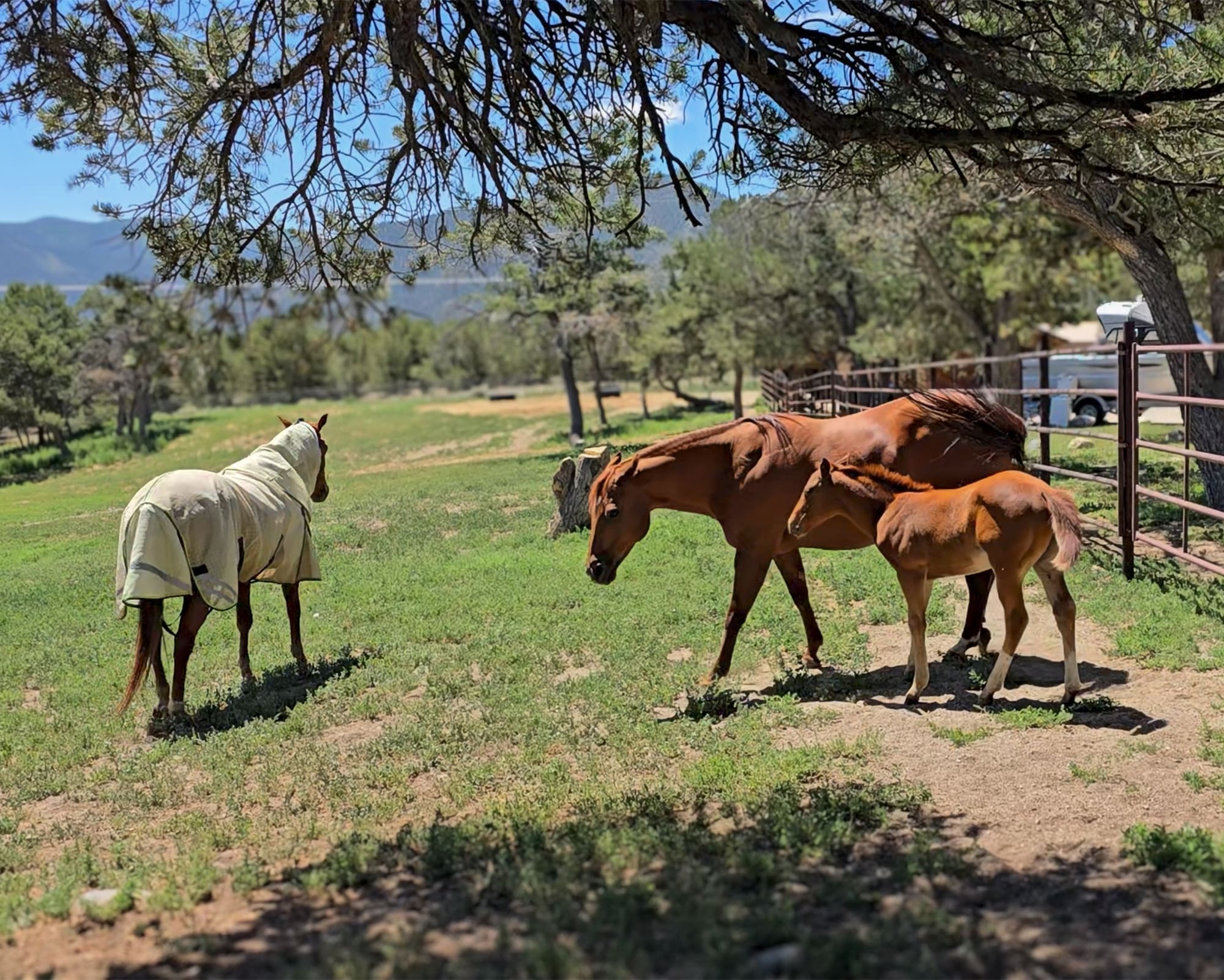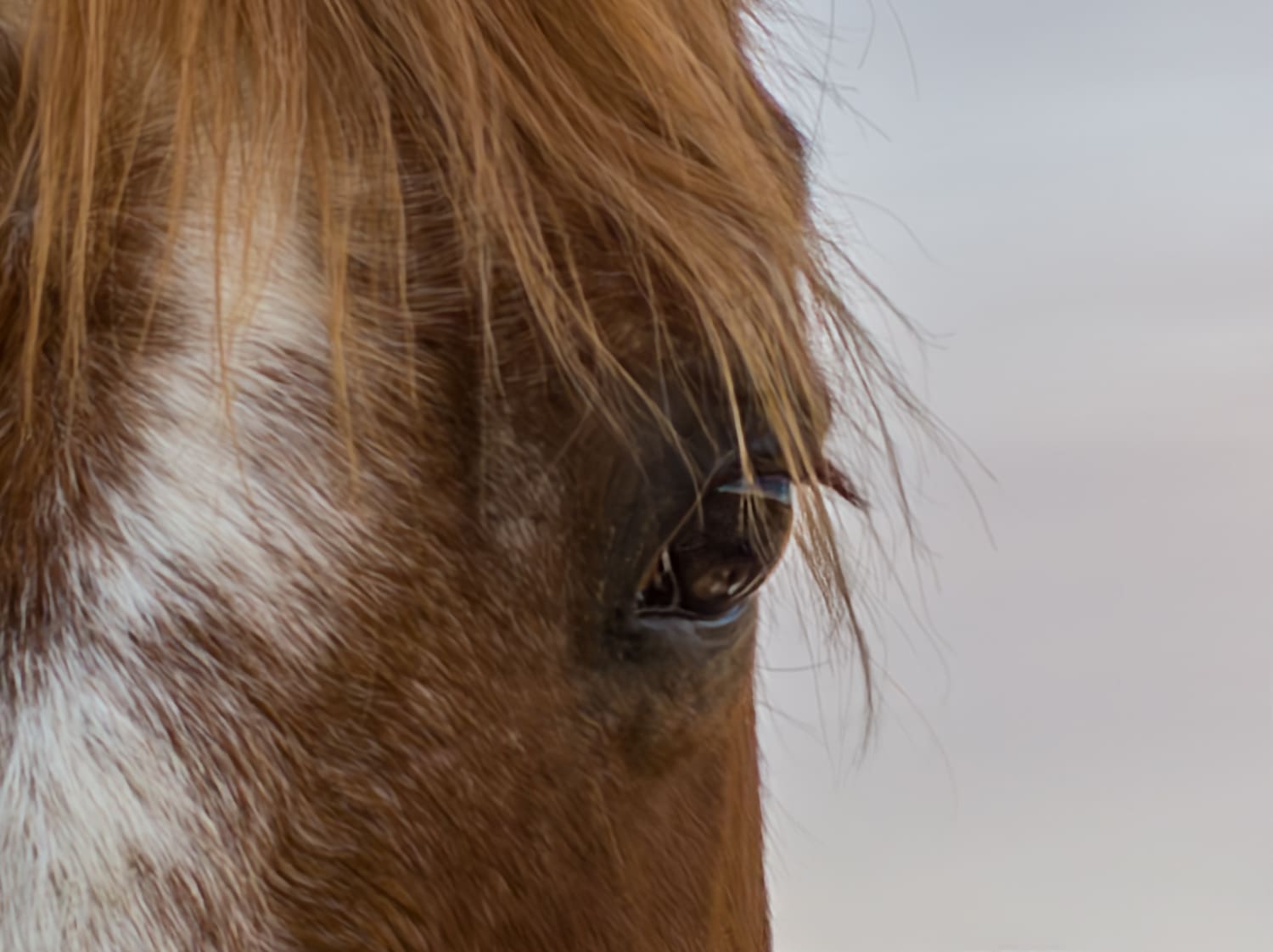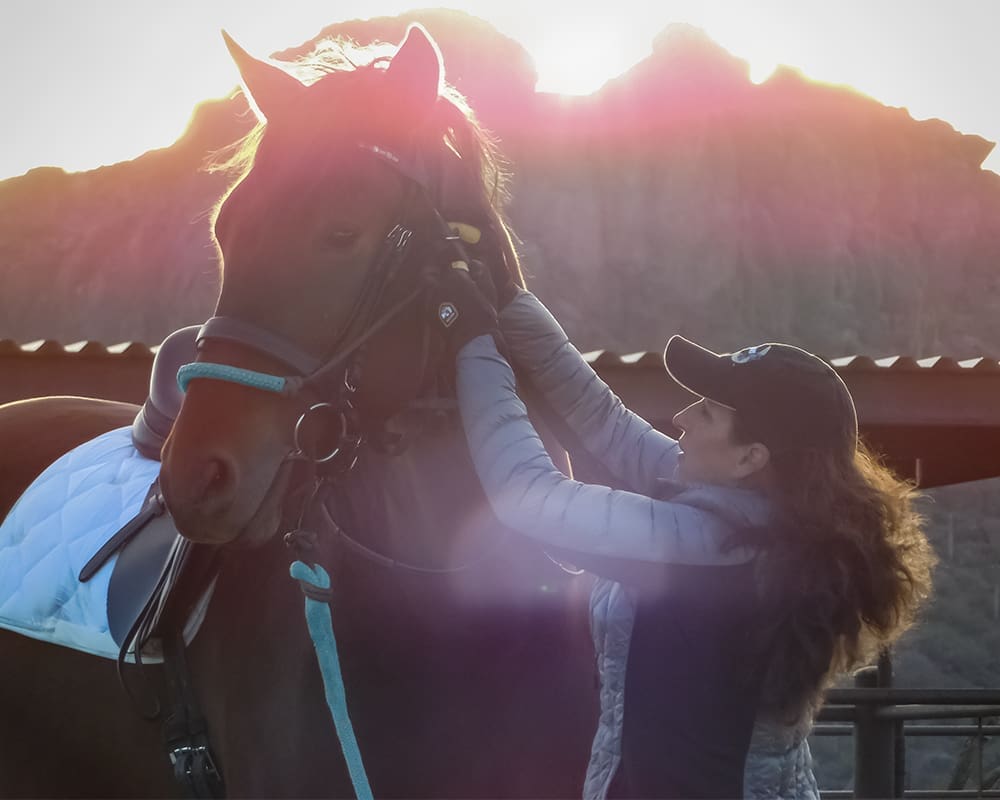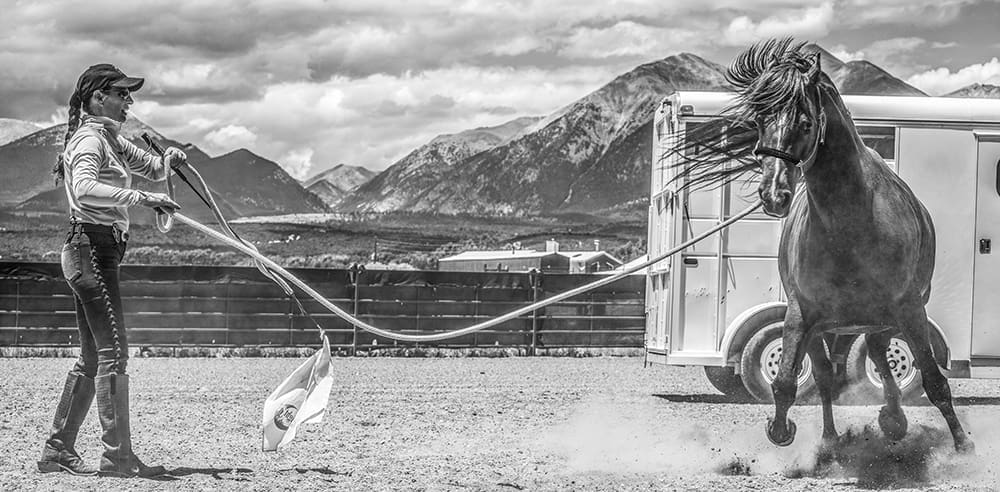Greetings!
Recently I had my nose buried to the grindstone for several days, filming one of my newest videos, “Bit Basics.” It took three long days, working with two different horses—an unstarted 2 year old filly and a 13 y/o ex-roping horse who was terribly confused by any pressure on the bit. The horses were great. The filly almost trained up too fast (it’s a pretty quick process when you are starting with a clean slate) and although the older horse took longer, as expected with engrained behavior, he did really well too, showing a dramatic change from head-tossing and star gazing to walking and trotting with his head low and his back rounded on a loose rein.
One of my favorite episodes of Horse Master was filmed here at our place in Colorado in the month of June, this episode features a mature Arabian gelding that seemingly had many training issues, like general disobedience, bucking at canter, throwing his head and rushing all the time. At first we thought this episode was going to be about a trail horse that wouldn’t cross water—at least that is what we were hoping. We have a beautiful pond here on our property and it’s perfect for trianing horses to go in water.
We always start the show with the “before” footage, the purpose of which is for the owner to demonstrate the horse’s problem/issue. At this time, we also deicde what issue we will focus on. There’s not a lot of teaching time in a half hour show (which is really only 26 minutes including commercials) so we’ve learned to narrow the topic down to one simple thing we can fully address in that time. But you know how horses are—as soon as you brag on them, they’re bad and as soon as you speak ill of your horse, he turns into the perfect angel. In this case, the Arab, Stinger, walked right into the pond belly deep—without hesitating. Okay, next problem? Bucks at canter.
So we relocated the film crew to the arena and proceeded to get “before” footage at the canter. Sure enough the horse was crow-hopping, bucking, rushing, breaking gait—just having a terrible time of it; neither horse nor rider was happy. It was painfully obvious (pun intended) that this was not a training issue at all but clearly a saddle fit issue. For the past four years, since she bought this horse, the owner had been struggling with a myriad of training issues, probably all of which tied back to a very poor saddle fit.
Now, when you have a long term, engrained issue with a horse, it doesn’t just disappear with a quick fix. Generally horses have developed emotional baggage (they think it’s going to hurt) and habitual behavoirs (rushing, breaking gait, tossing head and inverting). The first step is to identify the root of the problem, fix it, then retrain the horse. Amazingly, with Stinger, it was virtually an instant fix. As soon as I put my Circle Y Flex2 Reining saddle on him, he was a whole new horse. The flexible tree can really work wonders on a horse with a saddle fit problem. Right away Stinger was dropping his head, rounding his back and coming easily into a collected frame.
It would take some time for the owner to learn to ride the horse correctly and fix some of the bad habits like breaking gait, but first we had to make it physically possible for the horse to comply.
The older I get and the more experience I have with horses, the more I appreciate how often so called “training issues” are actually physical or mental issues. The horse either can’t comply with our demands physically or mentally, he has absolutely no idea what it is you’re asking of him. Have you had this kind of experience with your horse? The other side of that coin is people that are too quick to blame a horse’s bad behavior on a physical issue when in reality the horse “has their number” and is just totally taking advantage of the rider.
I’m excited about this video, along with my new training aid, the elbow pull bitting rig. Stay tuned for more info on that!
All the best,
Julie



